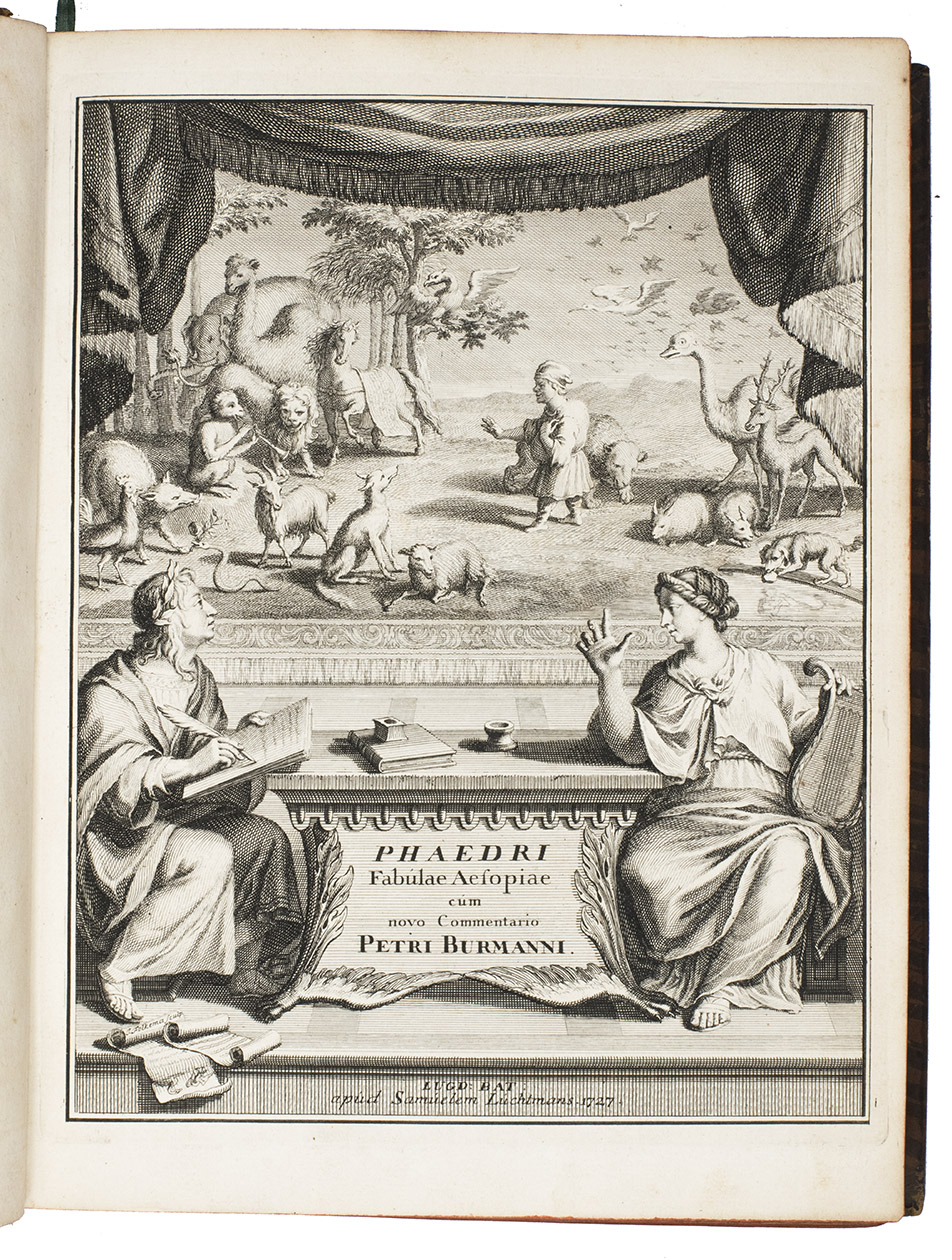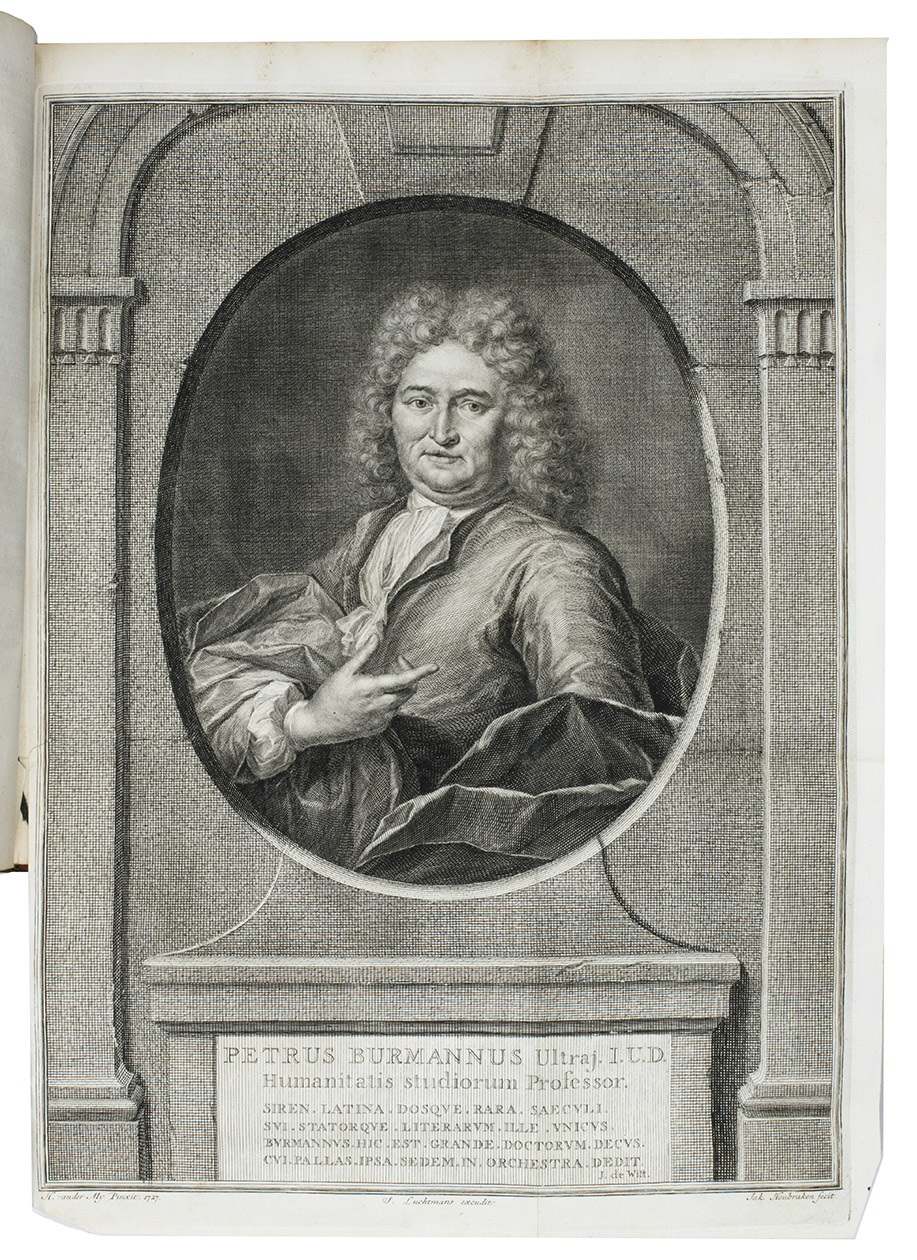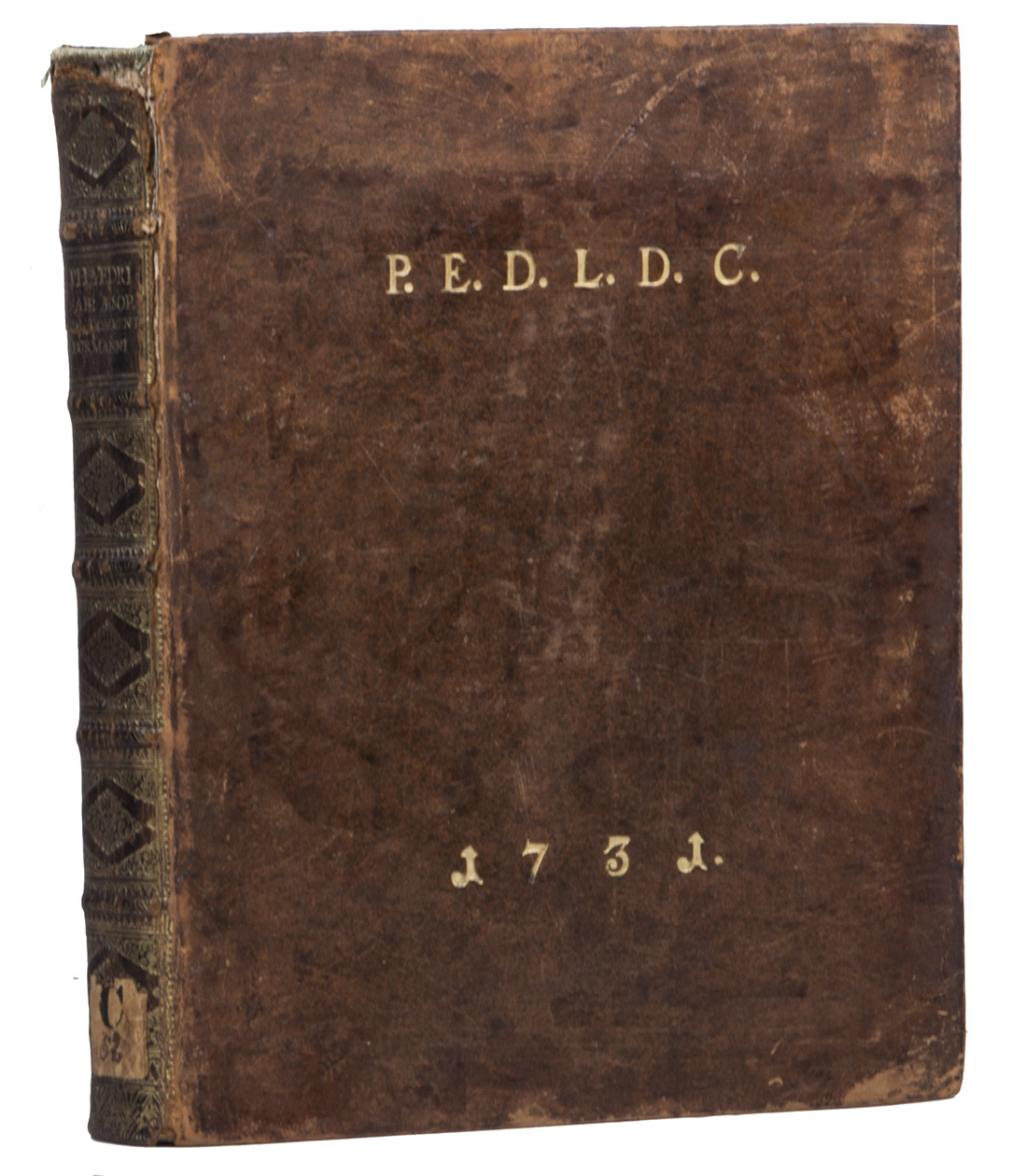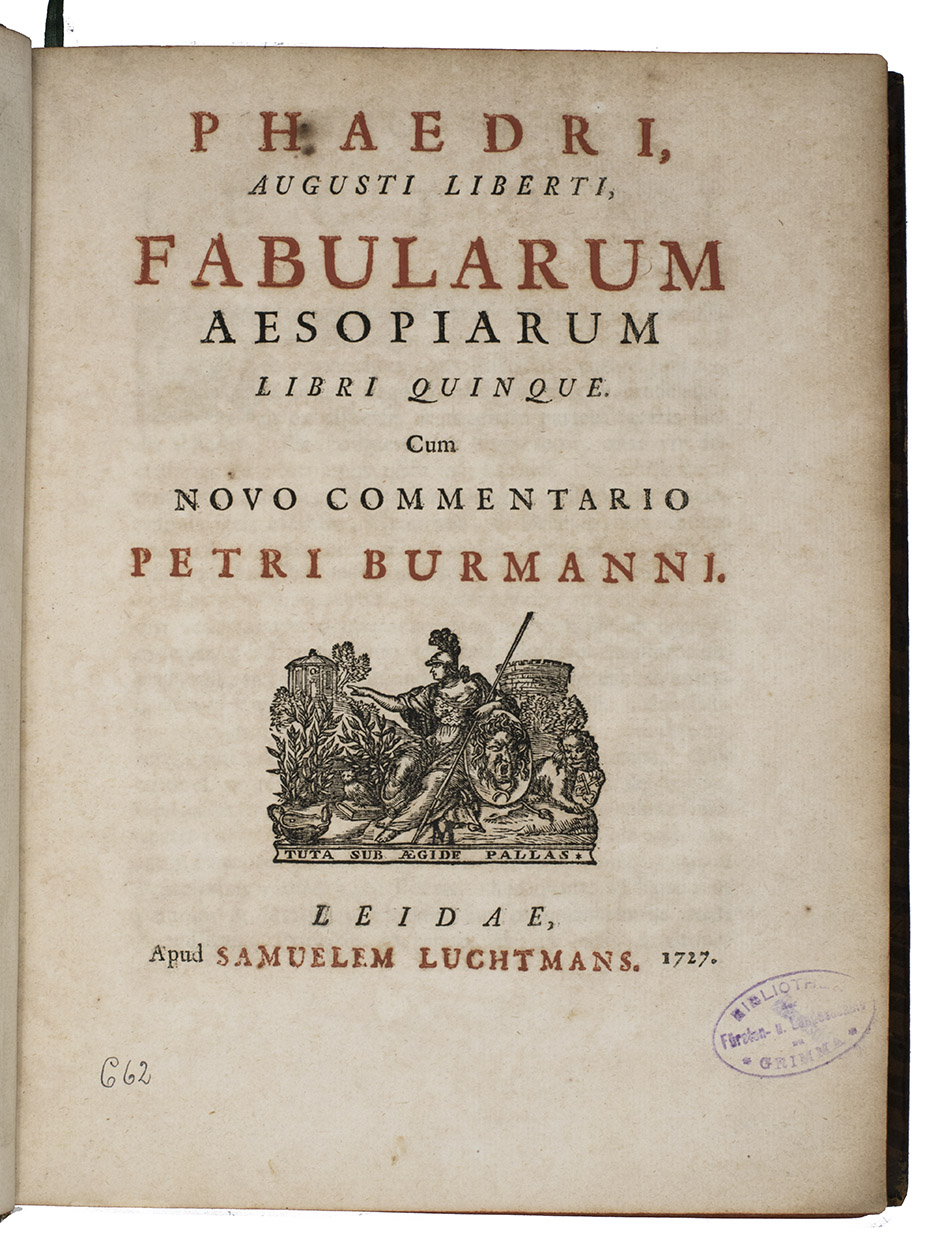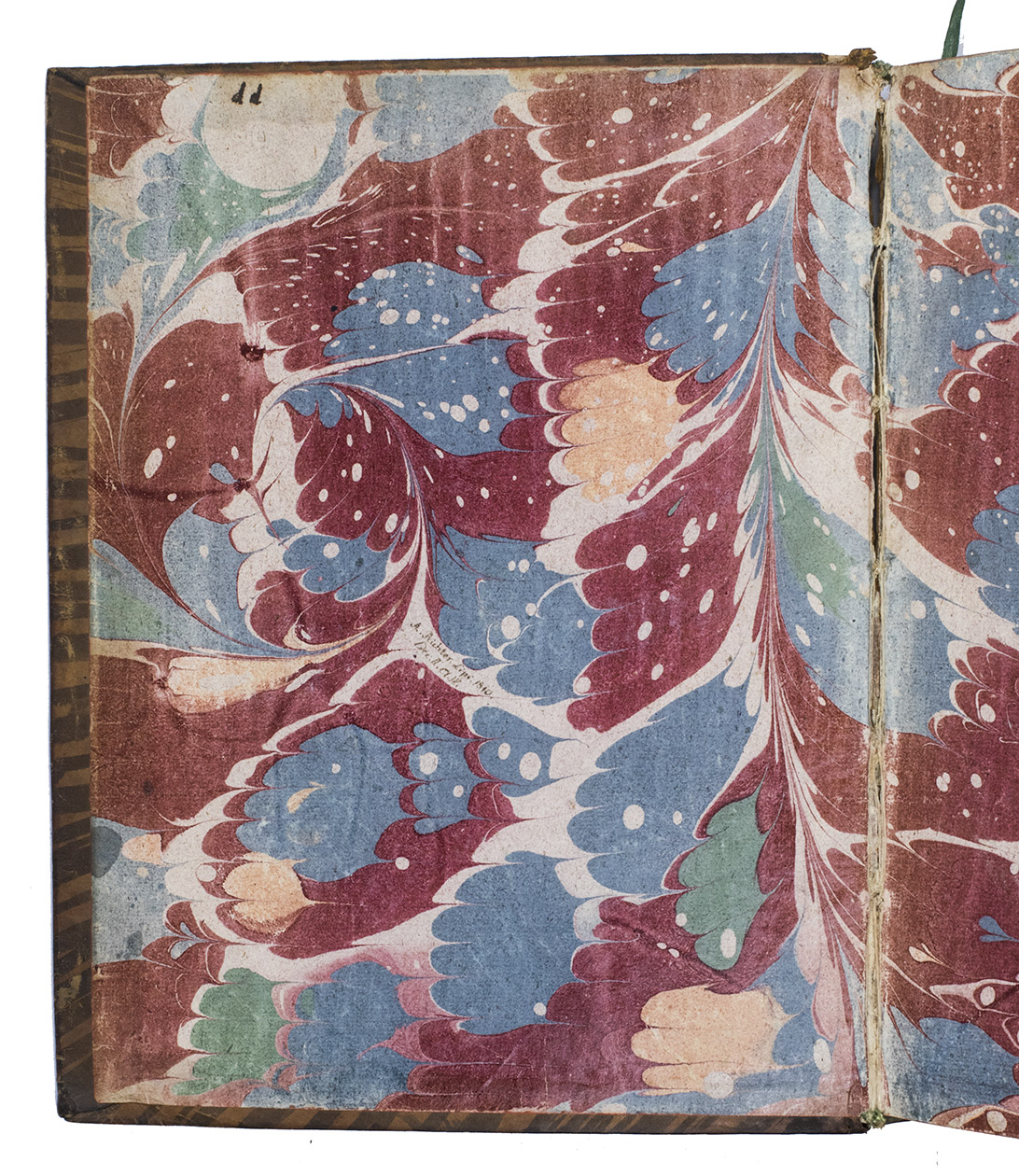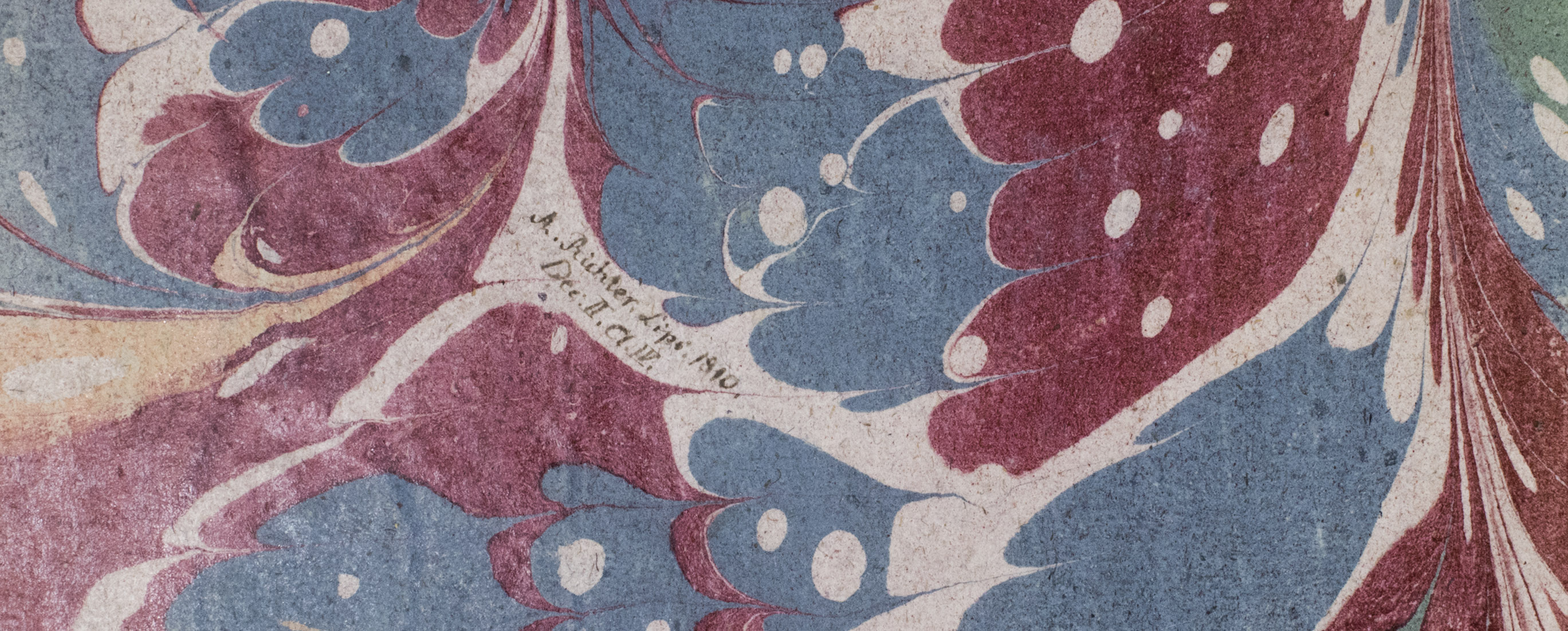PHAEDRUS.
Phaedri, Augusti Liberti, Fablarum Aesopiarum Libri Quinque. Cum novo commentario Petri Burmanni.
Leiden, for Samuel Luchtmans, 1727. 4to. With the well-known engraved frontispiece by Jacob Folkema (1692-1767) after the original by Joseph Mulder and Tiedeman, folding engraved portrait of Petrus Burmannus by J. Houbraken after H. van de My (painted 1727) and I. Luchtmans. Title-page printed in red and black, with woodcut printers device; some woodcut headpieces and initials. Full calf over boards, spine in compartments and lettered in gold, gilt binding edges, edges painted red, marbled endpapers; on the front cover: P. E. D. L. D. C. and date: 1731 in gold. [54], 94, 264, [48] pp.
€ 350
Complete and perhaps the most prestigious large paper edition of the Burman recension of the 91 Fables of Phaedrus in Latin verses with Burmans commentary in two columns underneath each fable, including for the first time the rare Epistola Critica, to H. B[land[, S[cholae] E[tonensis], I[nstructorem] by Francis Hare, dated London, 30 January 1727: the new commentaries to the fables written by Francis Hare as a protest against the edition published (Cambridge and London, 1726) by the world-famous philologist and classical scholar Richard Bentley (1662-1742), Master of Trinity College, Cambridge, considered the "founder of historical philology". Also the often lacking large portrait of Burman by Jacob Houbraken, with a poem by J. de Wit is bound in after the "Epistola".
After his studies of Law and the classical languages in Utrecht, his native city, and Leiden, Petrus Burman the Elder (1668-1741) settled down to the practice of law, without, however, abandoning his classical studies. In 1696 he was nominated to the professorship of eloquence and history at the Utrecht University. To this chair was soon added that of Greek and politics. In 1714 he paid a short visit to Paris and ransacked the libraries. In the following year he was appointed successor to the celebrated Perizonius, who had held the chair of history, Greek language and eloquence at Leiden. In 1724 he became the 9th Librarian of Leiden University. His numerous editorial and critical works spread his fame as a scholar throughout Europe, his Phaedrus edition being the first. Burman was rather a compiler than a critic; his commentaries show immense learning and accuracy.
Slight browning at places. Top of spine and hinges weak. Bodemann, 90.2 (without the Epistola critica (94 pp.); Fabula docet, 189-190, nr. 118 (without the Epistola critica); Landwehr, F150; Schwabe/Barbier, 83-84.
Related Subjects:
